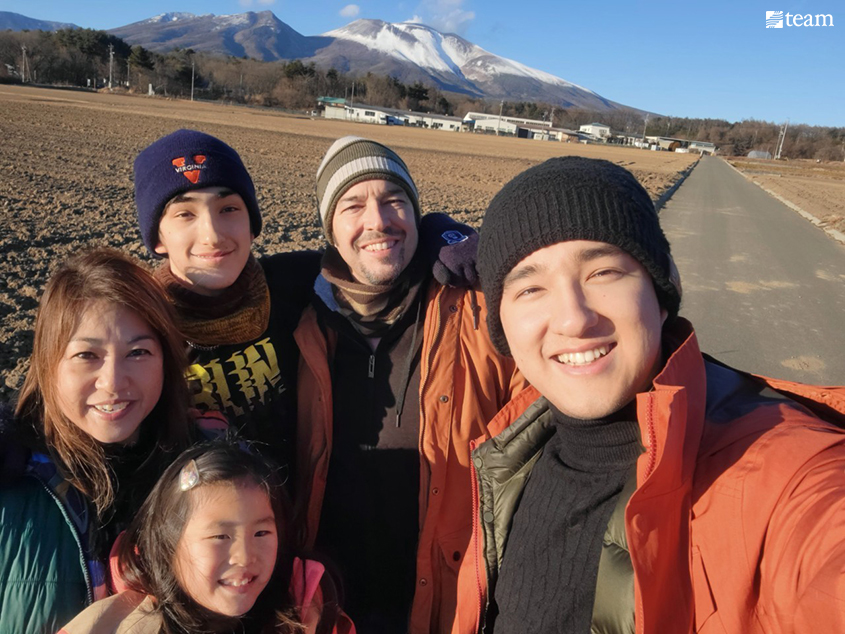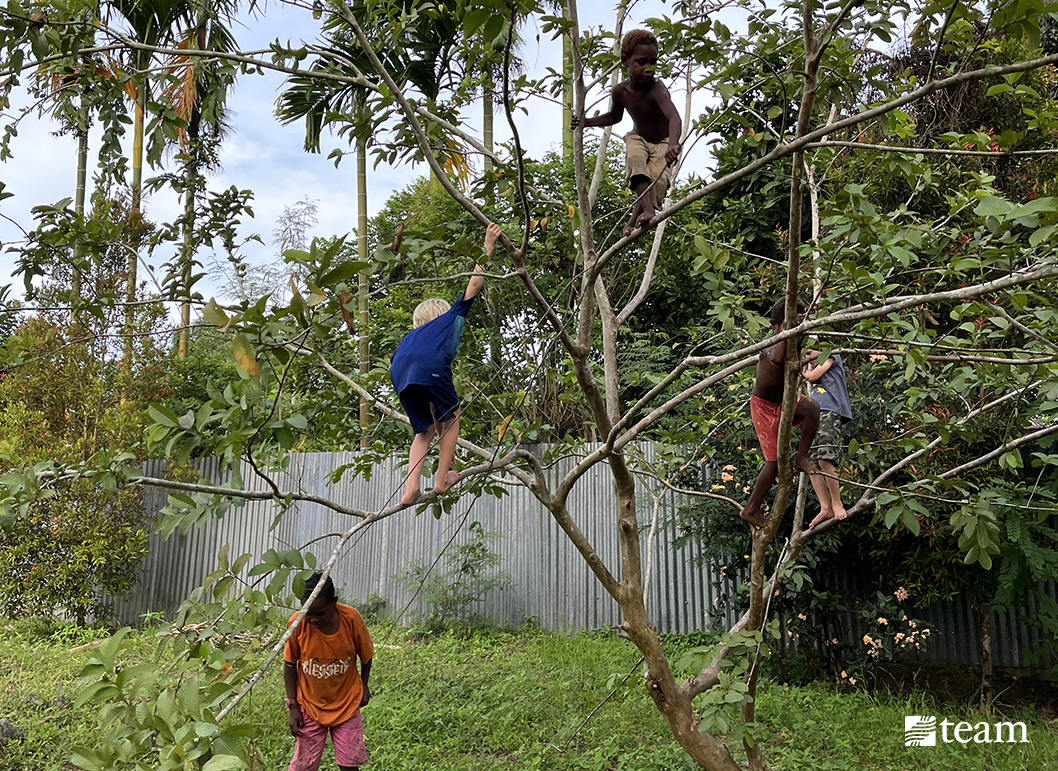
Ministry Updates
New Life in the Missionary Graveyard
March 18, 2025
by Natasha Fish

The nation of Japan has an unfortunate and concerning nickname: Missionary Graveyard. This moniker arises from the fact that many missionaries over the last several decades have left Japan and gone back home after not seeing any fruit for a very long time. In this challenging landscape, TEAM global workers Rob and Yoko seek to breathe new life into a culture deeply longing for the love and connection that can be found in knowing Christ and being a part of His Church.
Rob and Yoko have been serving with TEAM in Nagano, Japan since 2016. Their personal mission statement is to bring the parallel lines of community and the Church together. Their local church’s vision is to know Christ, grow in Christ, and show Christ together to bridge that gap. Rob and Yoko know that the church building is where Christians gather on Sundays, but that the people of God are to go into the community in creative ways to be salt and light.
The Barriers of Shame
In an honor/shame culture that’s 0.3% evangelical Christian, the opportunity to share the hope of the Gospel is enormous, but difficult. People are driven by trying to please others, save face, and do what will make the group look good, whether that’s the family, business, or entire society.
“In Japan, your value is caught up almost completely in how much value you bring to moving the group’s efforts forward,” Rob says. “Those who fail to do so bring shame, and the only way to get rid of the shame is to remove yourself.”
If someone can’t leave a social setting, like in the case of a job or family, he or she often stays silent and detaches emotionally. This behavior even permeates the Church, as Rob and Yoko have seen that people are physically there, but emotionally absent. Rob shares, “I’ve heard many times that Japanese Christians don’t feel they are as good as other Christians they’re comparing themselves to…so they silently leave the Church. They will even change their contact info and completely disappear.”
The Door of Relationship
Because of these societal pressures, people living in the Japanese culture often have a deep unmet need to be accepted and loved for who they are. While they may not be ready to come to church, the post-service coffee hour is when people show up.
“They’ll come to hang out with people they don’t know,” Rob says, “Because they feel loved.” And that’s a big deal.
In western culture, showing up to a coffee hour with people you don’t know is common, but not in Japan. Rob laughs as he reminisces about when he and Yoko first began their ministry. “We started having barbecues at our house and inviting people,” Rob recalls. “Yoko said, ‘No, they don’t know each other!’, and I said, ‘Great, they’ll get to know each other!’” Yoko’s reply was, “No, you can’t do that, they won’t like that, it’s uncomfortable.”
Yet, God is breaking down those cultural barriers. Rob and Yoko have witnessed people feeling loved enough to walk into a group that’s not their own. Usually, this only happens if they come into the group through the “door” of relationship. “With someone they trust,” Rob says, “They will take the risk to come to this new group, and then they feel loved, and then they’ll come back, and form a new group.”

Love Never Gives Up
Within these new groups, where Christians and non-Christians mingle, there is opportunity for the Gospel to address the shame that people carry, even though it may take years.
Yoko was born and raised in Japan, so she knows the culture well and how long it takes to form meaningful relationships where the Gospel can take root. “Japanese people are very polite,” she shares. “We don’t express our feelings. Animism is a big thing in Japan, where anything can be god. When we introduce Jesus to people, they take it as one of the things that will give them good luck. They will be ‘open’ to the Gospel and maybe they will look like they’re listening, but it takes a long time to build a relationship, sometimes 10 or 20 years.”
When it gets challenging to remain in relationship with their Japanese friends without evidence of change, Rob and Yoko persevere. Yoko remembers how she met the Lord. “If God was able to save me,” she recalls, “Then he’s able to save this person. He didn’t give up on me, so he will never give up on this person either.”
Resurrection Life in the Graveyard
Despite the commitment of Rob, Yoko, and others like them, the future of the Church in Japan is uncertain. By 2030, 70% of Japanese pastors will be over 70, and local Christian churches in Japan are literally dying out as congregants age and young people remain unengaged with the Church. Rob and Yoko experience this close to home, as their own local church is looking for a Japanese pastor – a role that is difficult to fill.
But in faith, Rob proclaims that “We need to depend on God to provide a pastor, as it’s something only he can do. Pray for us to be walking in faith, not expecting God to provide in the way we want Him to or think that He might, but walking with our hands open to what unique and creative ways God will answer our prayers.”
Even in the midst of the challenges of an honor/shame culture, the time it takes to build meaningful relationships, and an aging church, Rob and Yoko’s vision is clear. “We want to encourage the saints to love each other more deeply, making disciples that make disciples…reaching out to the community and being a community of love for people.”
Rob and Yoko have come to embrace that God does his best work in the graveyard. The graveyard is where Christ defeated Satan, where he brought life from death, and hope from despair. The Taylors believe that will happen in Japan, too. Rob says, “We believe we will see amazing resurrection work in the graveyard. He is always faithful.”

